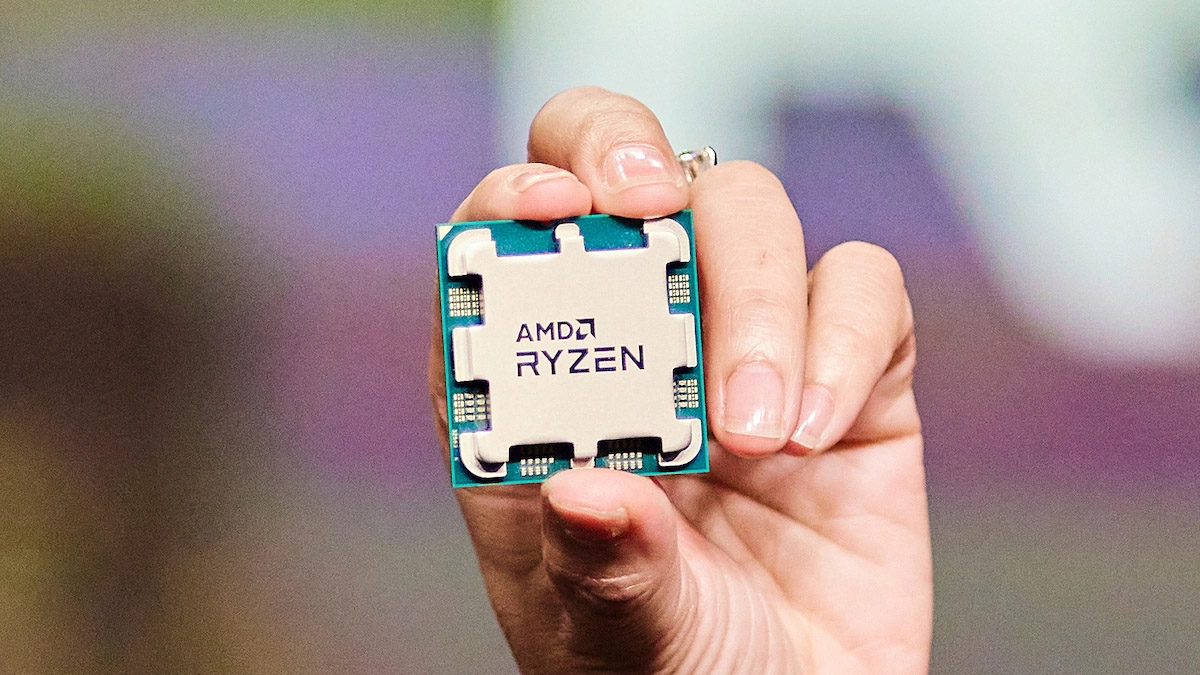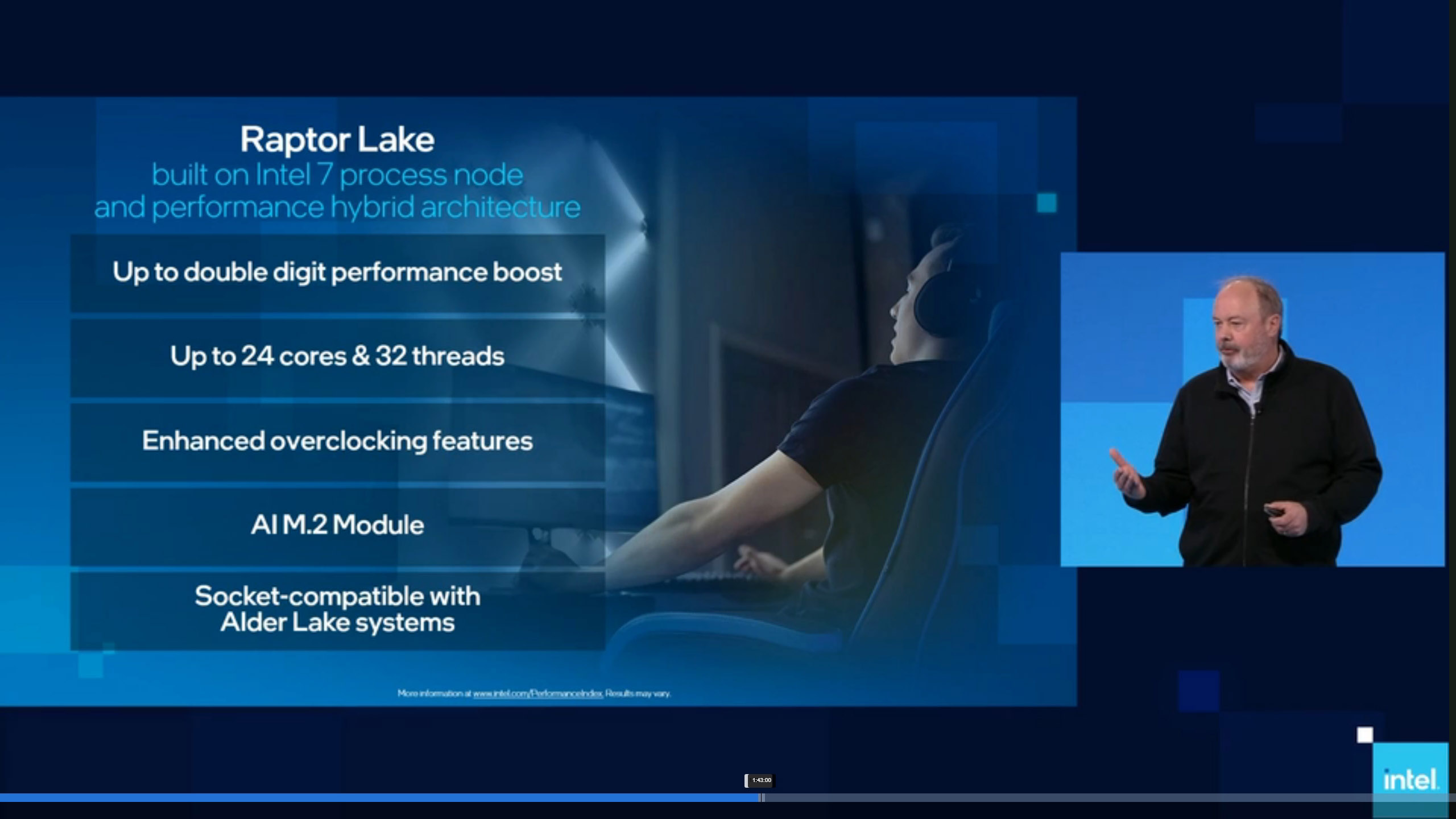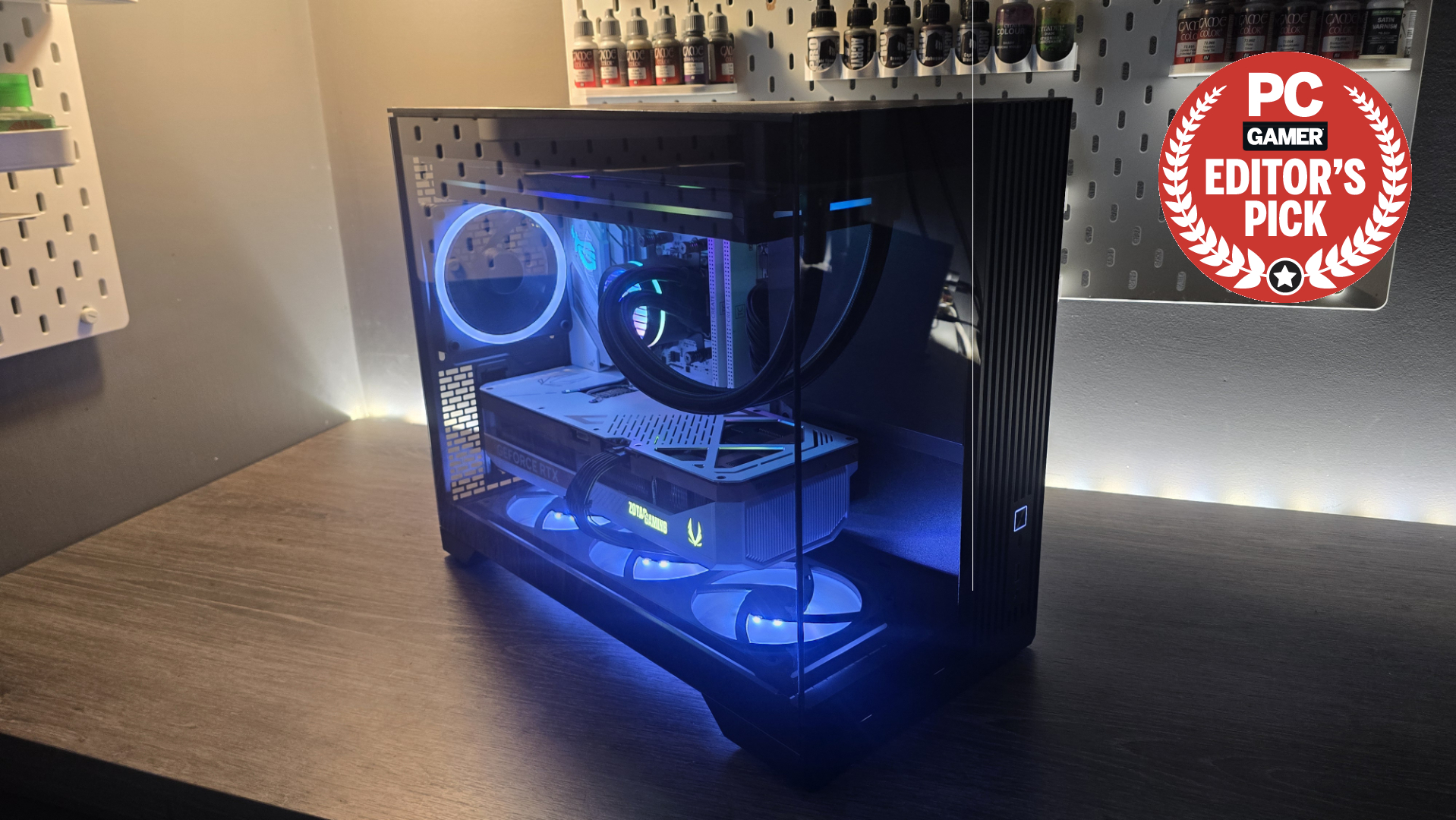AMD 7000 series V-Cache CPUs to fight an Intel 13th Gen CPU that could hit 6GHz
Cache or clocks? The next gen battle for gaming supremacy.

Keep up to date with the most important stories and the best deals, as picked by the PC Gamer team.
You are now subscribed
Your newsletter sign-up was successful
Want to add more newsletters?
Next generation CPUs are coming soon, and probably sooner than expected. The latest rumours point towards a September launch for AMDs Zen 4 processors, while Intel’s competing 13th Generation Raptor Lake models will follow towards the end of the year.
The first skirmish between AMD and Intel for gaming supremacy will be interesting enough, but the best SKUs are going to be held back until after the first wave of launches. We already know that AMD plans to release 3D V-cache equipped versions of some of its models. These will certainly provide improved gaming performance over non-3D Zen 4 models. Can Intel fight back? There’s a new rumor suggesting that Intel’s best chips might be able to reach up to 6GHz thanks to a mature process and architectural improvements.
The usual itchy Twitter finger leakers, including @Greymon55 suggests that Raphael-X (7000 series V-cache chips) will come ‘very quickly’ after the initial launch. Remember, the 5800X3D launched almost 18 months after the 5800X, so perhaps an early 2023 launch is possible. I would guess a launch in 2022 is unlikely as that would leave only three months after a September launch. There’s a reason that AMD might break the emergency glass sooner though. Intel’s 13th Gen CPUs could be very competitive.
That leads me to what Intel may bring to the fight. @OneRaichu indicates that Intel’s Raptor Lake CPUs can clock very well. There’s the possibility that Intel will be able to release a SKU that can clock up to 6GHz. That would be incredible. The Intel 7 process is now mature and given we saw the 12900KS clock at up to 5.5GHz, some tweaks from Intel could conceivably stretch that to 6GHz for a hypothetical i9 13900KS.

Best CPU for gaming: The top chips from Intel and AMD
Best gaming motherboard: The right boards
Best graphics card: Your perfect pixel-pusher awaits
Best SSD for gaming: Get into the game ahead of the rest
This begs the question. Clocks or cache? Cache or clocks? We have a peek at what to expect if we compare the Ryzen 7 5800X3D to the Core i9 12900K or KS. The 5800X3D is generally regarded as the faster gaming CPU, even though its clocked lower than the regular 5800X. That alone is undeniable evidence that many (but not all) games benefit from huge amounts of L3 cache.
But the 12900K and KS are still excellent gaming processors. If Intel can add a few hundred MHz on top of that for a 13900K/KS as well as its expected architectural improvements and cache increases, then we could have a very interesting fight on our hands.
Of course, the ‘fastest gaming CPU’ is largely an exercise in marketing from both companies. Performance absolutely matters, but so does price, power efficiency, features, and performance in non-gaming applications. There’s also the reliance on the GPU part of the equation. A system running games at 4K with all the details turned up isn’t going to tax the CPU anywhere near as much as a gamer chasing 360fps in CS:GO with an RTX 3090. The latter scenario is where the CPU can have a major difference.
Keep up to date with the most important stories and the best deals, as picked by the PC Gamer team.

Can AMD clock its X3D CPUs as high as non X3D ones? That would offset any loss in non-gaming applications, which counted against the 5800X3D. Can they overclock? Can stacked 5nm chiplets be kept cool?
What of Intel’s models? Will heat and power consumption concerns hold them back? Will they see higher clocks across the entire range? We love the i5 12400 here at PC Gamer. An affordable 6C/12T i5-13400 that can hit up to 5GHz without overclocking could be a very very good gaming CPU indeed. A few e-cores on the lower tier i5s or i3s wouldn't be unwelcome too.
There are a lot of questions to be answered. We’ll be looking to answer all of them and more once we get out eager hands on samples. Add to that Nvidia’s RTX 40 GPUs and AMD’s RDNA 3 GPUs and the next few months are shaping up to be a massively exciting time for gamers. I can’t wait.

Chris' gaming experiences go back to the mid-nineties when he conned his parents into buying an 'educational PC' that was conveniently overpowered to play Doom and Tie Fighter. He developed a love of extreme overclocking that destroyed his savings despite the cheaper hardware on offer via his job at a PC store. To afford more LN2 he began moonlighting as a reviewer for VR-Zone before jumping the fence to work for MSI Australia. Since then, he's gone back to journalism, enthusiastically reviewing the latest and greatest components for PC & Tech Authority, PC Powerplay and currently Australian Personal Computer magazine and PC Gamer. Chris still puts far too many hours into Borderlands 3, always striving to become a more efficient killer.

